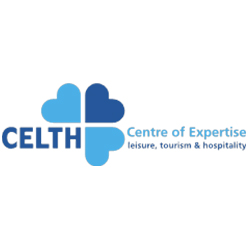In this report the philosophy of the Conscious Destination is discussed. Also the bounderies of the hospitality domain and the core themes (as defined by CELTH) of Conscious Destinations will be described. These themes are: “Living environment”, “Human capital”, “Organising Capacity”, “Smartness” and “Leisure offer”.
DOCUMENT

Myths can be part of the established narratives of tourist destinations: they offer a perspective on reality that may alter it but that makes it also more insightful by highlighting its inner contradictions and idiosyncrasies and challenging the universal values underlying it. This altered perspective on a place ensures visitors will feel touched by the myth and connected to the place, and the myth itself will be retold. In this paper, we discuss how we have connected narrative to story and story to myth to (re)tell the narratives of people and places and to enhance, in this way, the overall visitor experience in (tourist) destinations. We review two storytelling/placemaking projects that were commissioned to us by several regional, tourism organizations in Brabant, a province in the South of the Netherlands. The projects are: Becoming Vincent, a project about Vincent van Gogh; and Crossroads, a project about heritage from WWII. The aim of these projects was to draft a unique, narrative concept and design storylines that would link and upgrade the sites related to that heritage to eventually attract tourists there, and/or to stimulate visitors to visit more sites connected to the same theme. Finally, we draw lessons we learnt from these projects and highlight the insights we gained in the use of storytelling for mythmaking in tourist destinations
DOCUMENT
The general aim of this research project has been to examine this phenomenon of tourism flow switching and consider the factors driving the geopolitical instability that can compromise destination security. On a more practical level the research has also examined what the reactions of Dutch tourists are to security threats affecting their tourism decisions and looked at the development of preventive measures against attacks by destinations and travel organisations. Finally, the research on the regional geopolitics of the MENA and European areas have together with the attitudes of Dutch tourists towards destination security been used as inputs into a scenario planning process involving the steering group of tour operators who originally commissioned this research, as participants. This process has focussed on macro environmental analysis, identification of key uncertainties, and the development of resilient strategies for the future.
DOCUMENT

Project investigating the climate risk exposure of tourism destinations to develop a climate risk assessment methodology and tools for tourism destinations to manage climate risks.
The impacts of tourism on destinations and the perceptions of local communities have been a major concern both for the industry and research in the past decades. However, tourism planning has been mainly focused on traditions that promote the increase of tourism without taking under consideration the wellbeing of both residents and visitors. To develop a more sustainable tourism model, the inclusion of local residents in tourism decision-making is vital. However, this is not always possible due to structural, economic and socio-cultural restrictions that residents face resulting to their disempowerment. This study aims to explore and interpret the formal processes around tourism decision-making and community empowerment in urban settings. The research proposes a comparative study of three urban destinations in Europe (The Hague in the Netherlands, San Sebastian in Spain and, Ioannina in Greece) that experience similar degree of tourism growth. The proposed study will use a design-based approach in order to understand tourism decision-making and what empowers or disempowers community participation within the destinations. Based on the findings of primary and secondary data, a community empowerment model will be applied in one the destinations as a pilot for resident engagement in tourism planning. The evaluation of the pilot will allow for an optimized model to be created with implications for tourism planning at a local level that can contribute to sustainable destinations that safeguard the interests of local residents and tourists.
The Dutch hospitality sector is the 8th largest contributor to GDP, employing over 500,000 people, yet it remains heavily reliant on manual processes and human labor for service delivery. Structural staff shortages, rising labor costs, and increasing operational demands are pushing the industry to its limits. Hotels and restaurants, the backbone of this sector, are struggling with operational inefficiencies, high staff turnover, and the growing difficulty of maintaining high service standards. An overhaul of the traditional hospitality model is necessary to unlock sustainable growth. This Embrace IT project provides a structured, collaborative approach to solving these pressing challenges. Focusing on three critical areas—housekeeping services, food services, and reception services—the project will co-create concrete, tech-driven solutions together with hospitality businesses, technology providers, and knowledge institutions. These areas represent key operational cost drivers and are vital to revenue generation, making them priorities for industry leaders. By developing technology that complements human labor, the project ensures that operational efficiency improves while leveraging worker well-being and hospitality experience. Over four years, Embrace IT will establish a sustainable innovation ecosystem within the hospitality sector. Through iterative co-creation and field testing of automation, AI, and immersive technologies, the project will equip businesses with the tools and structures to shift from short-term, reactive strategies to long-term, sustainable digital transformation. Moving beyond the current "sensing" phase, where businesses recognize technological trends but are hesitant to act, Embrace IT will deliver concrete and scalable solutions that foster industry-wide adoption. Embrace IT aligns with key sector policy documents such as the 2024 Digital Destinations strategy from the Netherlands Board of Tourism & Conventions (NBTC), ensuring direct support of the broader vision for digital transformation of Dutch hospitality. This project will increase productivity of the sector while improving working conditions and leveraging hospitality experience – to ensure lasting societal impact.
Centre of Expertise, onderdeel van Breda University of Applied Sciences, NHL Stenden Hogeschool, HZ University of Applied Sciences
